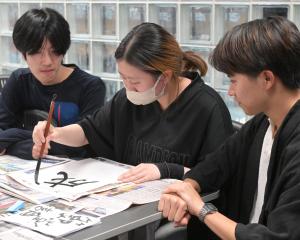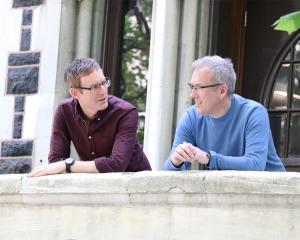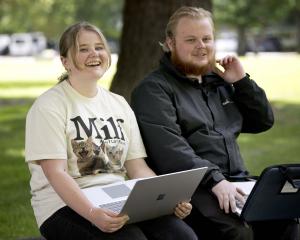
Several hundred students sat the LAWS301 Law of Torts exam on Friday afternoon, and one student, who the Otago Daily Times has decided not to name, said the experience was "hugely stressful" because the exam contained "obvious errors".
They said the error in the first question, which was worth the most marks and which most students started on, was "so bad that the wording of its instructions had to be changed substantially for all students after the exam started".
On Saturday, Otago University dean of law Bridgette Toy-Cronin sent an email to all affected students.
"We are really sorry about the error in the exam [on Friday] and the uncertainty and disruption this caused in an already pressured situation."
The university would work out how to account for this error before the marking of exam scripts, she said.
However, in a subsequent email, Prof Toy-Cronin rejected claims the other questions had errors.

"The exam for me, and for most other students, assessed a full years’ worth of learning and was worth 100% of the final grade for the course."
Representatives from the university informed students of the error in the first question midway through the exam, the student said.
"For me, this was half an hour after the exam started. For other students I spoke to, it was up to 50 minutes. Most had already answered the incorrect version of the question."
The student also claimed the exam’s third question should also have been scratched, as it introduced the concept of damages and the students had been previously told they would not have to answer a question about this in the exam.
In an email response to students, Prof Toy-Cronin said the question did not intend to misdirect students, and the question was asking the student to do a factual computation.
It was not a "damages question", she said.
However, she acknowledged that the wording of this question worsened time pressure and was, "compounding the stress from the error in Q1".
When the ODT approached the university, Prof Toy-Cronin apologised for the error in the first question, in which "a word was accidentally deleted from the sentence that stated the question".
Prof Toy-Cronin said the context of the examination disruption, caused by the original error and then correction, would be taken into account in marking the papers.
"At that stage, if any student feels their grade is not a fair reflection of their knowledge, there will also be the option of re-sitting a new Law of Torts exam in the special examination period of late January to early February next year.
"We will review our exam proof-reading processes to strengthen quality assurance in future."
This is not the first time this year that the law exams have come under scrutiny.
Last semester, a student, who had been granted permission to sit the company law examination early due to a challenging exam timetable, signed a confidentiality agreement as a condition of this arrangement — but then made an un solicited disclosure about the examination to peers via a group chat the night before the scheduled exam sitting.
The law students involved in the incident earlier this year have gone through an academic misconduct process, and have continued their studies, an university spokeswoman said.












